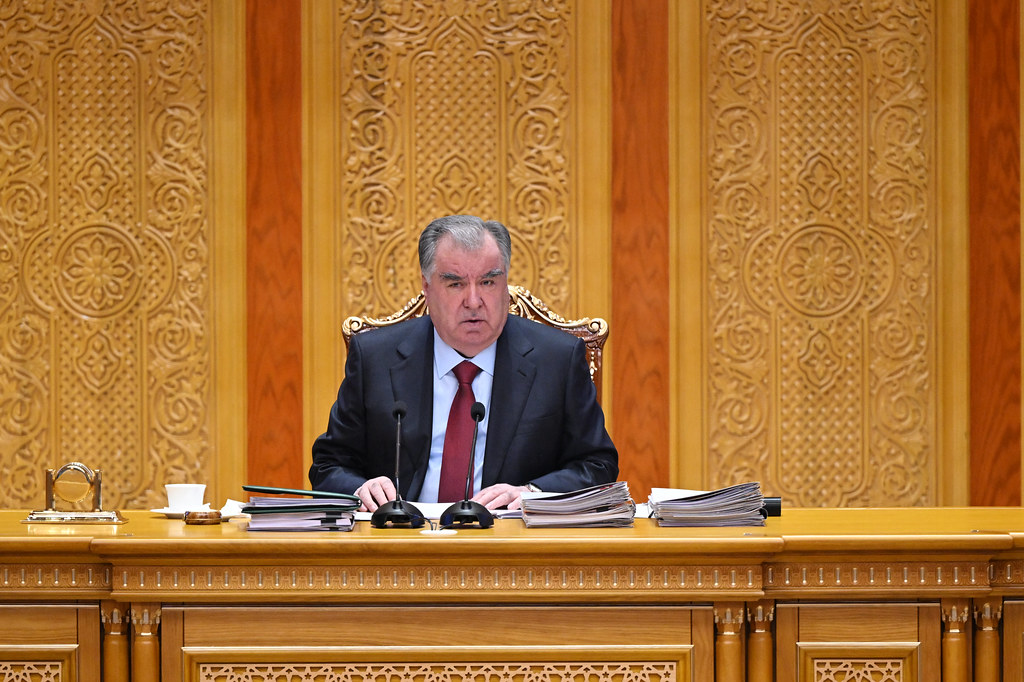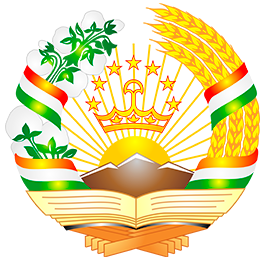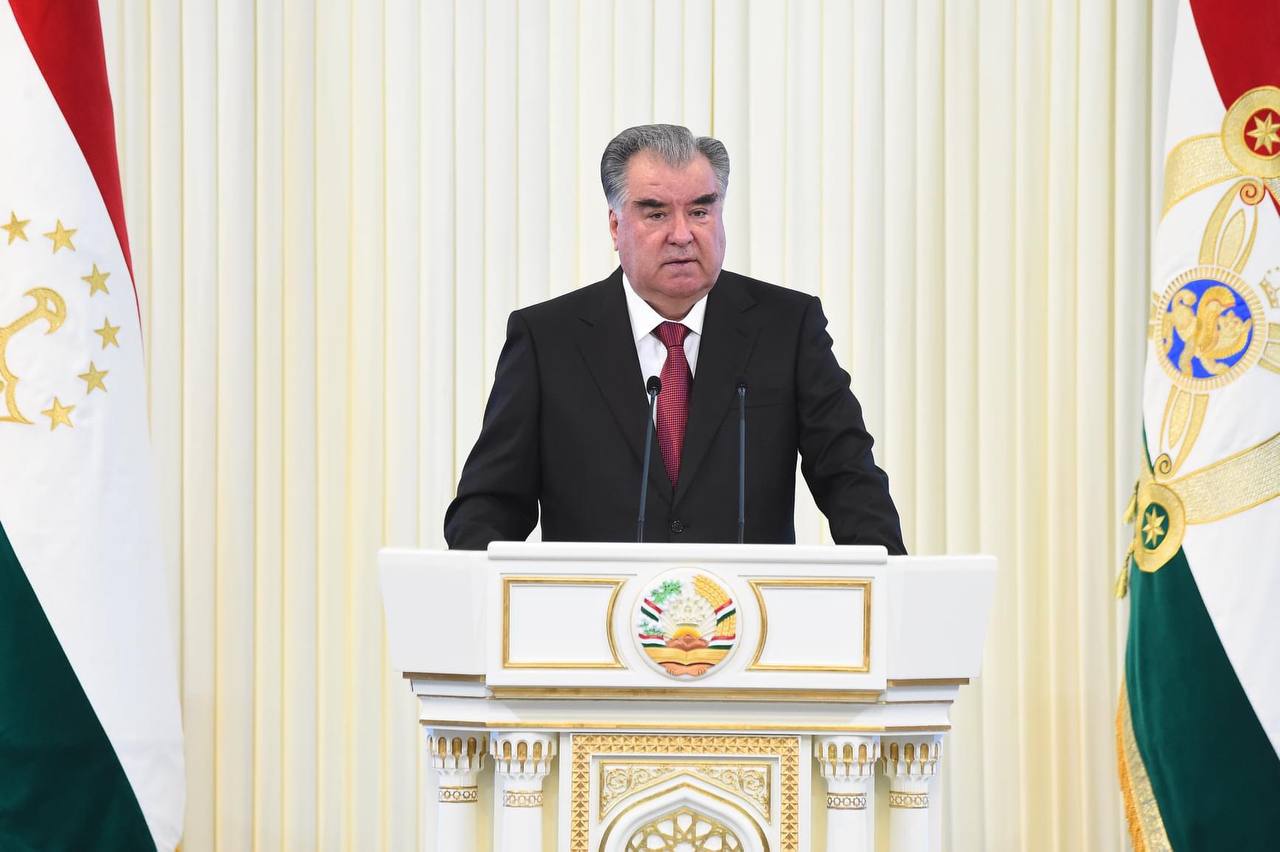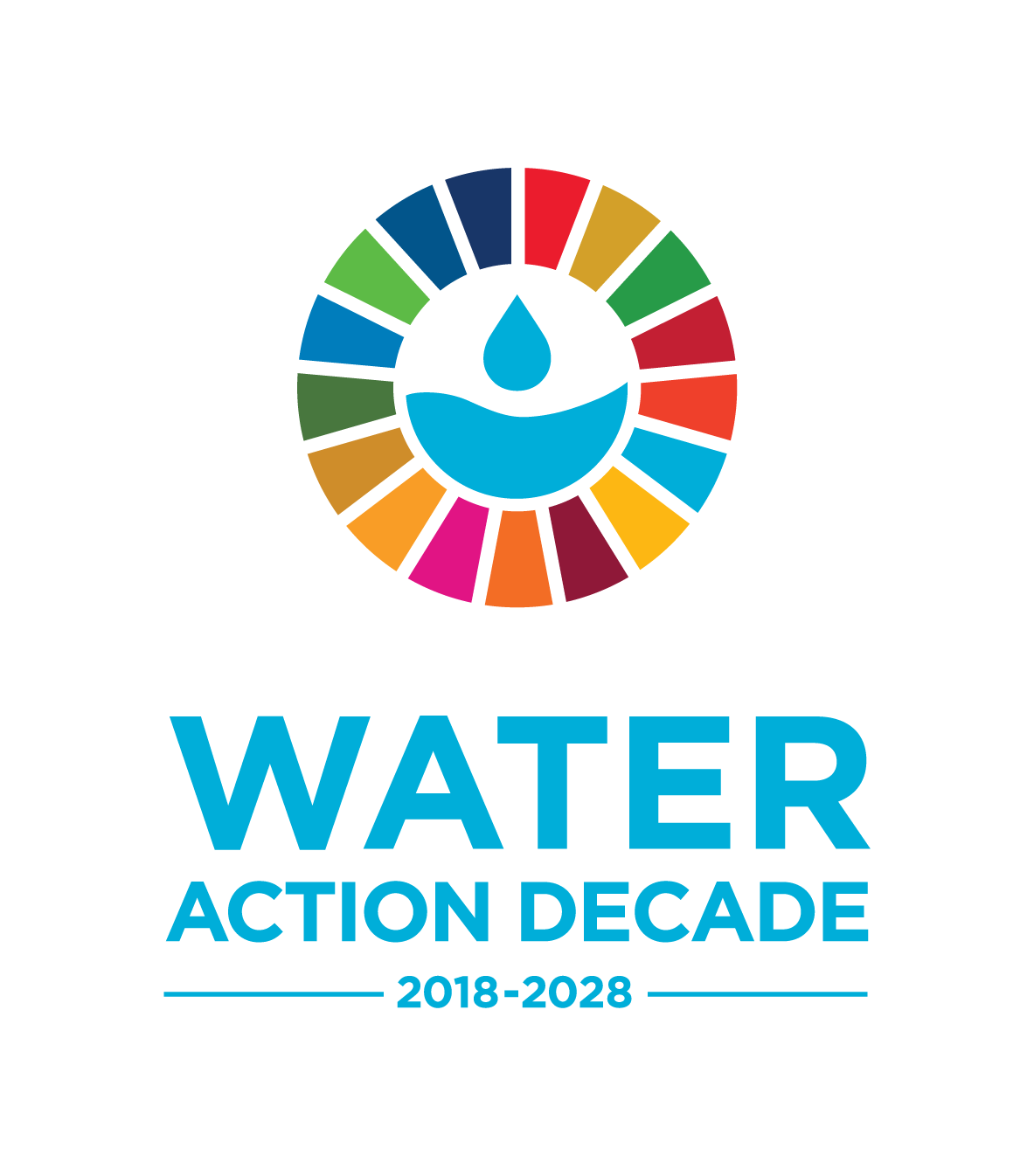
On January 17, an expanded meeting of the Government of the Republic of Tajikistan began in the building of the Government of the Republic of Tajikistan under the chairmanship of the President of the Republic of Tajikistan, Leader of the Nation, Head of the Government of the country, Honorable Emomali Rahmon.
The work of the session is attended by the leadership and members of the Government of the country, the Executive Office of the President of the Republic of Tajikistan and its structural units, heads of central state bodies, agencies under the President and the Government, republican enterprises and institutions, governors of regions, cities and districts, management of higher education institutions, centers for the implementation of state investment projects, state and joint-stock banks, official newspapers and magazines, and other responsible persons.
The plenary session of the Government of the Republic of Tajikistan will discuss in detail the results of the country’s socio-economic development in 2024 and determine the main tasks for 2025.
In the first part of the session, the report of the Prime Minister of the country, Kokhir Rasulzoda, on the results of socio-economic development in 2024 was first heard.
As it was noted, in 2024, a number of significant socio-economic developments occurred in the political and economic life of the country.
As a result of the implementation of the wise and far-sighted policy of the President of the country, economic growth was maintained at a stable level.
According to the Prime Minister, in the reporting period, the volume of gross domestic product amounted to 153.4 billion somoni, which is 22.6 billion somoni more than in 2023.
Inflation was maintained at 3.6%, which is 0.2 percentage points less than in 2023.
Last year, the plan for the total revenue of the state budget was implemented, and the inflow of funds into the budget amounted to 46.9 billion somoni, which is 1.8 billion somoni more than the drafted plan.
In 2024, the tax and payment collection plan was provided by the Tax Committee at the level of 105.3% or 20.4 billion somoni and the Customs Service at 106.8% or 9.7 billion somoni, which is 1 billion 18 million somoni and 618 million somoni, respectively, compared to the plan.
It was noted that 3.8 billion somoni was received from social tax to the budget of social insurance and pensions, which is 9.4% more than planned.
The Prime Minister of the country stated that in the reporting year, the growth rate of the industrial sector was ensured by 20% and the volume of production amounted to 53.8 billion somoni.
In 2024, 740 new production enterprises and workshops were put into operation in the country, including 528 new industrial enterprises, with the creation of nearly 20 thousand new, additional and restored jobs.
It was emphasized that in order to ensure the stability of the country’s energy system and the effective use of renewable energy sources, work was carried out in the past year within the framework of 18 state investment projects for the construction and modernization of power plants, reduction of electricity losses and introduction of its billing system, electrification of villages, construction of transmission and distribution lines and improvement of the financial situation of the sector for a total amount of 1.7 billion somoni dollars.
In the reporting year, the volume of agricultural production reached 74 billion somoni, and its growth rate amounted to 10.6%, including 13.4% in plant growing and 4.9% in livestock breeding.
In order to support entrepreneurship and improve the investment climate, the Government of the country has taken a number of measures in recent years by providing tax and customs benefits for the development of domestic production.
According to preliminary data, in 2024, the country received 4.9 billion dollars of foreign investment, which is 2.1 billion dollars or 73% more than in 2023.
In 2024, the total number of state investment projects operating in the country amounted to 90, and their volume of their funds amounted to 51.9 billion somoni.
As a result of the measures taken, trade turnover in 2024 increased by 13.6%, and its volume amounted to 65.8 billion somoni.
The Prime Minister stated that during the reporting period, the number of preschool institutions in the republic reached 744, which is 27 more than in 2023. The number of early childhood development centers increased by 503 during this period.
In 2024, 273 secondary education institutions and additional buildings and classrooms for 57,610 seats per shift were built in the republic. In total, 2 million 357 thousand pupils were enrolled in education.
In the reporting year, 65 primary vocational education institutions operated in the republic, in which 23 thousand 500 students were enrolled in 14 areas and 135 specialties.
It was emphasized that in order to develop the healthcare sector and timely eliminate existing problems, 3.7 billion somoni were allocated from the state budget for the development of the sector in 2024, which is 12.6% more than in 2023.
It was stated that the regulation of labor relations, the development of the labor market, and the provision of employment to the population play a key role in the policy of Tajikistan.
During 2024, with the assistance of state employment agencies, including through job fairs, 22.5 thousand people were provided with various types of employment.
In 2024, 247 thousand new jobs were created from all sources, of which 74 thousand were permanent.
As noted, progress is being made in the development of tourism, promotion and development of folk crafts. In particular, it was said that in 2024, 1.4 million tourists visited Tajikistan.
It was emphasized that during this period, the activities of state structures in the field of holding cultural, mass and educational events were strengthened.
In particular, the holding of a cultural program in honor of Mavlono Jaloliddin Balkhi at the UNESCO headquarters, as well as the inclusion of the “Mehrgon Festival” and “The Art of Making and Playing the Rubab” in the List of Intangible Heritage of Humanity are considered important events.
In the continuation of the plenary session of the Government of the country, reports were heard from the Minister of Finance Fayziddin Kakhorzoda, Minister of Economic Development and Trade Zavki Zavkizoda, Chairman of the Tax Committee Nusratullo Davlatzoda, Head of the Customs Service Khurshed Karimzoda, and Director of the Social Insurance and Pension Agency Dilmurod Davlatzoda.
Head of State, Honorable Emomali Rahmon gave specific instructions to the heads of ministries and agencies of the economy and finance sector, following their reports, on finding new sources of income for the state budget.
The Prosecutor General of the Republic of Tajikistan Yusuf Rahmon, the Director of the Agency for State Financial Control and Combating Corruption Sulaymon Sultonzoda, and the Chairman of the Accounts Chamber Karakhon Chillazoda reported on the activities of the supervisory and inspection bodies in the field of crime prevention and criminality, elimination of violations in the economic and social spheres, and mandatory compliance with the country’s current laws.
During the meeting, the Chairman of the State Committee for Investments and State Property Management Sulton Rahimzoda, the Chairman of the National Bank of Tajikistan Firdavs Tolibzoda, the Chairman of the State Savings Bank Amonatbonk Alijon Salimzoda, the Minister of Industry and New Technologies Sherali Kabir, the Minister of Agriculture Kurbon Hakimzoda, and the Minister of Energy and Water Resources Daler Juma reported to the Head of State on the progress of implementing the instructions of the Government of the Republic of Tajikistan and the status of development of the sectors.
During the report of the Minister of Agriculture, the President of the country, Emomali Rahmon, gave strict instructions to officials at the republican and local levels to develop the cotton sector, which is one of the main sources of raw materials for light industry and abundant jobs for the people.
Specific instructions were also given on the development of the industrial sector, including the implementation of the goals of the 2022-2026 “Years of Industrial Development”, other state programs, increasing electricity production capacities, and reducing electricity losses.
During his report, the Mayor of the city of Dushanbe, Honorable Rustami Emomali, stated that the Executive body of state authority of the city of Dushanbe undertook a number of constructive initiatives in 2024 to implement the country’s strategic goals and, in this context, improve the well-being of the capital’s residents, as well as to bring the city of Dushanbe to a new stage of development.
In 2024, the capital’s gross domestic product reached 31.3 billion somoni, with an increase of 8.3% compared to the previous year. The capital’s share in the country’s gross domestic product was 20.4%.
During this period, industrial enterprises of the city of Dushanbe manufactured products worth 5.2 billion somoni, and the growth rate increased by 25% compared to the previous year. The volume of exports of the city’s enterprises abroad reached more than 170 million somoni.
According to the Mayor of the city of Dushanbe, 141 workshops and manufacturing enterprises with more than 7,600 new jobs began operating in the capital last year.
In 2024, more than 43 thousand new jobs were created in various economic and social sectors of the city from all sources, and over the past 8 years, more than 280 thousand new jobs were established.
It was noted that over the 4 years of activities of the Fund for Supporting Manufacturing Entrepreneurship, more than 302 million somoni in preferential loans have been provided for the implementation of 62 projects of manufacturing entrepreneurs, and using the loans provided, 60 workshops and manufacturing enterprises have been built to date, creating more than 2 thousand new jobs.
It was noted that, according to the Action Plan in honor of the 35th anniversary of state independence, 4,337 measures have been implemented, creating more than 14 thousand new jobs.
To date, 2,464 measures have been implemented, including the construction of 37 comprehensive and preschool educational institutions, 21 health facilities, 56 workshops and industrial enterprises, 44 kilometers of roads, 9 sports facilities, 5 hotels and other facilities, creating more than 8,000 new jobs.
It was stressed that in 2024, 1.7 billion kilowatt-hours of electricity were produced at power and heating plants, which is 31% more than last year. 4.2 billion kilowatt-hours of electricity were used for the needs of the city, which is 535 million kilowatt-hours more than last year.
The total amount of electricity used amounted to 1.5 billion somoni, and its collection amounted to 96% of the plan.
In the reporting period, the total amount of financing for fixed assets from all sources amounted to 6.1 billion somoni, which is 20% more than the same period last year. During this period, direct investment in the city’s economy amounted to 1 billion somoni, which is 320 million somoni more than in 2023.
In 2024, more than 635 thousand square meters of residential buildings and shopping and service centers were commissioned, and in the past eight years – more than 3 million square meters.
Last year, 927 million somoni of budget funds were allocated for construction and design work, and a number of facilities and infrastructure in the education and healthcare sectors and engineering networks were designed and modernized.
During 2024, 32 kilometers of roads were built and renovated in Dushanbe from all sources for a total of 617 million somoni.
Over the past 8 years, 192 kilometers of roads were renovated in the capital for a total of more than 3 billion somoni.
In view of transition to a “green economy” in 2024, 30 electric buses were put into use for residents, and the purchase of another 60 electric buses is planned. To implement the electric transport concept, 4,350 electric vehicles were imported together with rental companies and entrepreneurs, and the rental companies’ transport fleet was completely converted to electric transport.
The city budget in 2024 was over-executed by 4.6 billion somoni, or 11 percent, which is 452 million somoni more than planned.
In 2024, 4.7 billion somoni of foreign investment was attracted to the capital’s economy, and over the past eight years this figure has reached 30 billion somoni.
Currently, the implementation of 17 investment projects worth 3.2 billion somoni is underway in the capital, within the framework of which more than 2.3 billion somoni have been completed to date.
“The issues of improving the conditions of educational institutions, enhancing the quality of education, the level of knowledge of students and the professional level of teachers are under the constant care and support of the city leadership,” – said the Mayor of Dushanbe, Rustami Emomali.
In this regard, in 2024, 7 educational institutions with 13,620 seats and 3 preschool institutions for more than 500 students were built and put into operation in Dushanbe.
Over the past 8 years, 53 secondary educational institutions with 96,700 seats and 25 preschool institutions for 4,800 pupils have been built.
Currently, the construction of another 21 secondary educational institutions with 40,000 seats in two shifts and 60 preschool institutions for more than 12,000 pupils is underway in the city.
It was stated that in 2025, 6 more secondary educational institutions with 13,520 seats in two shifts and 9 preschool institutions for 2,280 pupils will be built in the capital.
In the reporting year, the city’s medical institutions were provided with advanced medical equipment and devices for 21 million somoni within the framework of 12 state health programs.
In order to implement the state youth policy, develop physical education and popularize sports, during this period, the first international Grand Slam wrestling tournament, the first World Wrestling Championship, the first World Judo Championship among youth under 21 years of age, and the first World Sambo Championship were held with the participation of athletes from 167 countries of the world.
It was emphasized that in order to render the city green and prosperous, more than 400 thousand trees and shrubs and 19 million seasonal and perennial flowers were planted last year.
It is planned to plant more than 600 thousand ornamental and shade trees during the winter planting season of 2024 and spring of 2025 through a city-wide campaign.
The Chairman of the Badakhshan Mountainous Autonomous Province Alisher Mirzonabot, the Chairman of Sughd Province Rajabboy Ahmadzoda, and the Chairman of Khatlon Province Davlatali Said reported on the results of the socio-economic development of the regions, cities and districts in 2024.
It was emphasized that during the reporting period, the implementation of the local budget plan of GBAO based on own revenues was 107.9%.
In the cities and districts of the region, due attention was paid to the construction of manufacturing enterprises, and 43 industrial enterprises were put into operation.
In Sughd Province, according to the plan, 166 new enterprises and workshops with 2,060 jobs began operating in 2024. During this period, the volume of industrial production in the region reached 30 billion somoni.
In Khatlon Province, 155 facilities were put into operation in 2024, 58 of which were built at the expense of local entrepreneurs for a total of 90 million somoni.
It was noted that within the framework of the Action Plan in honor of the 35th anniversary of state independence, 1,663 facilities were built in the cities and districts of Khatlon Province, which is 134.1 percent of the annual plan.
The Head of State, Honorable Emomali Rahmon, gave specific instructions and assignments to the heads of the regions, cities and districts of the country to expand the process of preparing for the celebration of the 35th anniversary of state independence, implement the indicators of the Address of the President of the Republic of Tajikistan, monitor the process of education and upbringing of the younger generation, promptly consider people’s complaints, support entrepreneurship, ensure sustainable economic and social development, increase the volume of production of industrial and agricultural products, and boost the volume of their export.
The President of the Republic of Tajikistan, Leader of the Nation, Honorable Emomali Rahmon, delivered his speech at the plenary session of the Government of the Republic of Tajikistan analyzing the results of the country’s economic and social development in 2024.
In order to implement the indicators of the Address of the President of the Republic of Tajikistan, the Head of State instructed the Government of the country, ministries, agencies and local executive bodies of state power to mobilize all their efforts for the timely and high-quality implementation of tasks, instructions and assignments.
The Head of State, Emomali Rahmon, instructed the Government of the country, ministries, agencies and local executive bodies of state power to expand their activities and, in accordance with the previous instruction, ensure the country’s economic growth rate in 2025 at a level of no less than 8 percent.
It was instructed to pay particular attention to the issues of forming a “green economy”, accelerating the process of digitization of sectors of the national economy and expanding non-cash payments.
The President of the country named the effective use of existing capacities, the establishment of new manufacturing enterprises, the production of competitive products with high added value, strengthening the country’s export potential, creating new jobs, and improving the quality of social services as among the priority issues.
It was emphasized that in 2024, in order to implement the Government’s anti-crisis action plan and implement priority investment projects, more than 16 billion somoni in grants and preferential loans were attracted from development partners.
The relevant structures were tasked with ensuring the timely implementation of joint reform programs with international financial institutions and taking practical measures to continue the process of attracting grant funds and preferential loans to sectors of the national economy and supporting the state budget.
In order to ensure the consumer market and reduce the dependence of the domestic market on imported goods, the Head of State considered it necessary to take additional measures to increase the volume of industrial and agricultural production and effectively use existing capacities, and to ensure that prices remain stable this year.
The Head of State, Emomali Rahmon, analyzed the statistics of industrial food products imported from abroad and emphasized that most of these products should be produced domestically.
It was noted that in 2024, despite the 104 percent implementation of the state budget revenue plan, in some districts of the country the tax and payment collection plan was not ensured, which requires taking additional measures.
Therefore, the Head of State instructed the relevant structures to take the necessary measures to find new financial resources and fully attract sources of revenue to the state budget, improve the quality of its development and implementation, as well as further reduce tax arrears.
The President of the country instructed the responsible ministries and agencies to take specific measures to promptly resolve the social issues of the population and create conditions for a decent life for the people, including measures to increase the salaries of law enforcement officers, military personnel, government authorities and administration, educational, scientific, healthcare, social protection institutions, pensions and scholarships.
In the direction of economical and targeted use of budget funds, relevant ministries and agencies were instructed to eliminate existing shortcomings as soon as possible and ensure the effective use of budget funds and transparency of their expenditures.
The President of the country called the use of digital technologies and the transition to a full system of non-cash payments in the activities of state bodies and various sectors a pressing need of the day.
It was emphasized that in order to expand these processes, the Address of the Head of State declared 2025-2030 as the “Years of Development of Digital Economy and Innovation”.
The Government of the country was instructed to adopt and implement a comprehensive action plan to implement this initiative.
Regarding the issues of transition to a digital system, the Head of State, Emomali Rahmon, considered it necessary to take a number of measures. In particular, ministries and agencies must be connected to the interdepartmental information integration system within three months, service ministries and agencies must use the capabilities of the systems developed at the Agency for Innovation and Digital Technologies to complete the relevant activities, and the Executive Office of the President and central government bodies must implement a full electronic document flow from July 1, 2025, in order to ensure the effective functioning of the “e-Government”.
The Republican Headquarters was instructed to take urgent measures on the issues of digitization of state services, non-cash payments and resolving existing issues.
It was emphasized that although non-cash payments for the purchase of goods and services in the total volume of payments using electronic means of payment have increased from 6.9 percent in 2019 to 26.2 percent in 2024, this result is still not satisfactory.
Therefore, the National Bank was obliged to take additional measures together with relevant ministries and agencies to expand non-cash payments and develop the infrastructure of the payment system.
The President of the country emphasized that although foreign direct investment in the country amounted to more than 4.3 billion somoni in 2024, an increase of 39 percent compared to 2023, its volume is still not sufficient to meet the needs of the country’s economic development.
The State Committee for Investment and State Property Management, ministries, agencies, and local executive bodies of state power were instructed to significantly increase the attraction of direct investment.
While analyzing the situation in the agricultural sector, the Head of State noted that despite the progress made in the sector in 2024, the existing opportunities have not yet been fully utilized.
In this regard, it was considered necessary to take additional measures to effectively use arable land, increase its productivity, provide agricultural farms with high-quality seeds of agricultural crops, in particular, cotton and cereals, and on this basis create new jobs and increase the volume of agricultural production.
In order to achieve the strategic goal of rapid industrialization of the country and the requirements of the State Program for Export Development for 2021-2025, the Ministry of Industry and New Technologies was tasked with correcting the shortcomings of the sector together with other ministries, agencies, and local executive bodies of state power, using all resources and opportunities to strengthen the development of industry.
It was instructed to take practical measures to process domestic raw materials into final products within the country, and to increase the production of competitive products and their export.
While analyzing the situation in the energy sector, especially electricity generation, the Head of State Emomali Rahmon emphasized that in the reporting year, the volume of electricity production in the country amounted to 22.4 billion kilowatt-hours, which is 567.6 million kilowatt-hours or 2.6% more than in 2023. However, despite the instructions given, a number of problems still remain in the country’s energy sector that are adversely affecting the production process and the volume of electricity supply.
In particular, electricity losses, which still remain at a high and alarming level and amounted to 20% in 2024, and the incomplete level of collection of electricity consumption fees, which has reached 91% during this period, are among the problems in the sector that need to be resolved.
In this regard, the Head of State, Emomali Rahmon, instructed the relevant ministries and agencies to ensure the timely and high-quality implementation of projects to reduce electricity losses.
It was considered necessary to take decisive measures to introduce a billing system as soon as possible, fully record electricity users, and collect electricity fees in a timely manner together with local executive bodies of state power.
The Address of the President of the country emphasized that from May 2027, due to the production of electricity at the Rogun hydroelectric power plant and a series of hydroelectric power plants on the Vakhsh River, the country’s electricity shortage will be completely eliminated and Tajikistan will achieve complete energy independence.
In this regard, the Head of State instructed the Government of the country and other officials to accelerate construction work.
Analyzing the situation in the social sectors, the Head of State, Emomali Rahmon, emphasized that various strategies and programs are being adopted and implemented in order to improve the level and quality of education and upbringing and implement reforms in the education sector in the country.
The relevant ministries and agencies were instructed to take timely and decisive measures for the full and high-quality implementation of the adopted programs and strategies.
Other instructions were given to the relevant structures to improve the quality of education.
The Head of State, Emomali Rahmon, stated that in the country’s healthcare sector, the departure of doctors and other medical workers from the public sector has become a cause for concern.
Taking into account the above situation, it was instructed that the ministries and agencies of the sector, together with the heads of local executive bodies of state power, take additional measures to address the shortcomings.
Given the high goals of statehood and the continuing complexity of the situation in the world and the region, the President of the country instructed to ensure the implementation of approved plans in the field of work with the population and to expand the holding of political and explanatory, military and patriotic, cultural and entertainment and sports events.
The Head of State demanded that public activists and citizens comply with the requirements of the laws “On the Streamlining of Traditions, Celebrations and Ceremonies” and “On the Responsibility of Parents in the Education and Upbringing of Children”.
It was emphasized that by the end of 2024, within the framework of the Action Plan to celebrate the 35th anniversary of state independence in the country, more than 18,200 out of the 28,800 planned facilities had been built, which is 63% of the plan.
Concluding his speech, the President of the country, Emomali Rahmon, once again charged members of the Government, heads of other state structures and bodies, and management of regions, cities, and districts to take personal responsibility for eliminating the shortcomings and deficiencies mentioned in today’s meeting and fulfilling the tasks assigned to them, using the available opportunities and resources.








